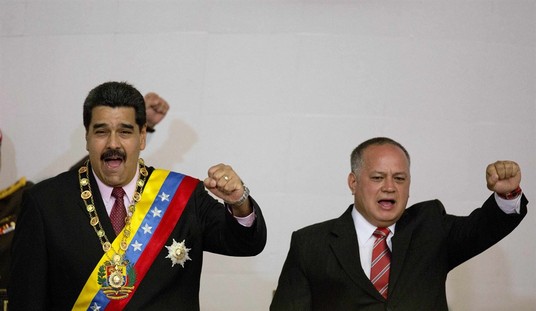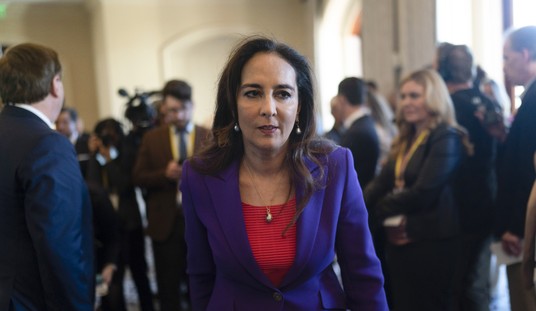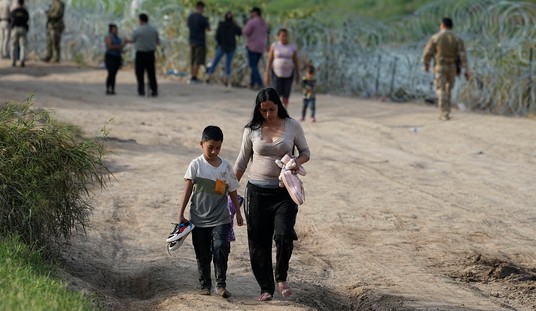
In this Saturday, Sept, 12, 2015 photo, Iraqi army Humvees arrive to support security forces and Sunni and Shiite volunteers during heavy clashes with Islamic State group militants at the front line in the suburbs of Ramadi, Anbar province, Iraq. (AP Photo)
The Iraqi Army is down to just five active divisions, but even those are less — and in some ways more — than they seem.
Read:
One army division is now under informal militia command, according to U.S. and other Western military officers. Shi’ite paramilitary elements have taken at least partial control of the Interior Ministry, according to security officers, Iraqi politicians and U.S. military officials. The Iraqi government rejects that claim.
The Shi’ite militias, which dominate most frontlines, say they support the government and pose no threat to Iraq’s minority Sunni sect. The Popular Mobilisation Committee, or Hashid Shaabi, as the militias are collectively known, belongs “to the Iraqi government,” said Naim al-Aboudi, a spokesman for the Asaib Ahl al-Haq militia. “The Hashid doesn’t represent a sect. It represents all Iraqis.”
But the militias make no secret of their independence from Baghdad. Militia leader Amiri warned in a televised interview last month that if the Shi’ite groups did not approve of U.S. military operations in Iraq, “We can go to Abadi and the government and … pressure them: ‘Either you will do this, or we will do that.’” Amiri did not specify what action his group would take.
The first essential attribute of government is that it enjoys a monopoly on the legal use of force within its jurisdiction. Iraq fails this test, badly. Given Iranian meddling, ISIS firepower, U.S. fecklessness, and the boldness of the local militias, Baghdad seems unlikely to ever again fulfill that first essential function even if the fight against ISIS is ever won.
With that in mind, let me flash you Longtime Sharp VodkaPundit Readers™ back to June of last year:
It’s not so much that the nation states of the Arab world are badly drawn, it’s that the nation-state and Arab Islam aren’t a good combination. Maybe you like Islam, and maybe you like strong nation-states. Maybe you like scotch, and maybe you like marshmallows — but you wouldn’t necessarily want to combine the two.
The future of the Greater Middle East might be far more stable as a loose confederation or affiliation of city-states, looking towards a new state centered around Mecca-Medina as its titular head. The vast hinterlands might be left to the own, cruel and primitive devices — with the city-states conducting the occasional pacifying raid. Otherwise they would use the time-honored tradition of buying off the tribes, or playing them off one another. That’s pretty much how Muammar Gaddafi ran Libya for decades, and it took the giant upset of the Arab Spring (and Western airpower) to ruin it.
What I described back then is already coming, in the worst way imaginable, to Iraq and Libya. We wish Syria would enjoy even that much relative peace. Egypt with its ancient tradition as a strong central state may continue to adhere, provided the cash-for-calories keeps coming in from the oil sheiks. Then again, oil wealth and the cash it provides may become dearer as America’s fracking geniuses continue their steady work of making expensive shale oil cheaper.
[ASIDE: Don’t look to Russia to impose a lasting peace. Moscow’s current goal is to keep Syria’s coastal region safe for the Assad regime — and nothing more. Moscow may mount future expeditions to Syria or elsewhere, but they’ll apply maximum violence for the shortest period before bugging right back out. Russia’s Roman-stye punitive expedition(s) isn’t far removed from what I got excoriated by Andrew Sullivan and others for writing on the tenth anniversary of 9/11. Putin is no strategic genius, but he knows better than Bush about how to impose his will, and he knows better than Obama about how to treat friend and foe. He’ll leave us to pick up the big pieces, if we dare.]
If recent years in upper Mesopotamia are any indicator (and I believe they are), then the instability which allowed ISIS to thrive is likely to metastasize to the wider Arab world — pushing my envisioned “steady-city-state” endgame even further into the future.
Getting there, no matter how long it takes, requires a complete rethinking of our approach to the region. We need to shift our focus away from bogus capitals which pretend to govern bogus countries. Instead we must try working with (or against) the Arab equivalent of big-city ward heelers. And we’ll need a White House, a State Department, and a Pentagon able to effectively and quickly apply our statecraft with flexibility, ingenuity, cynicism, and sometimes force to an ever-shifting landscape.
Those are not typically American strengths, but we’d best learn them quickly.










Join the conversation as a VIP Member